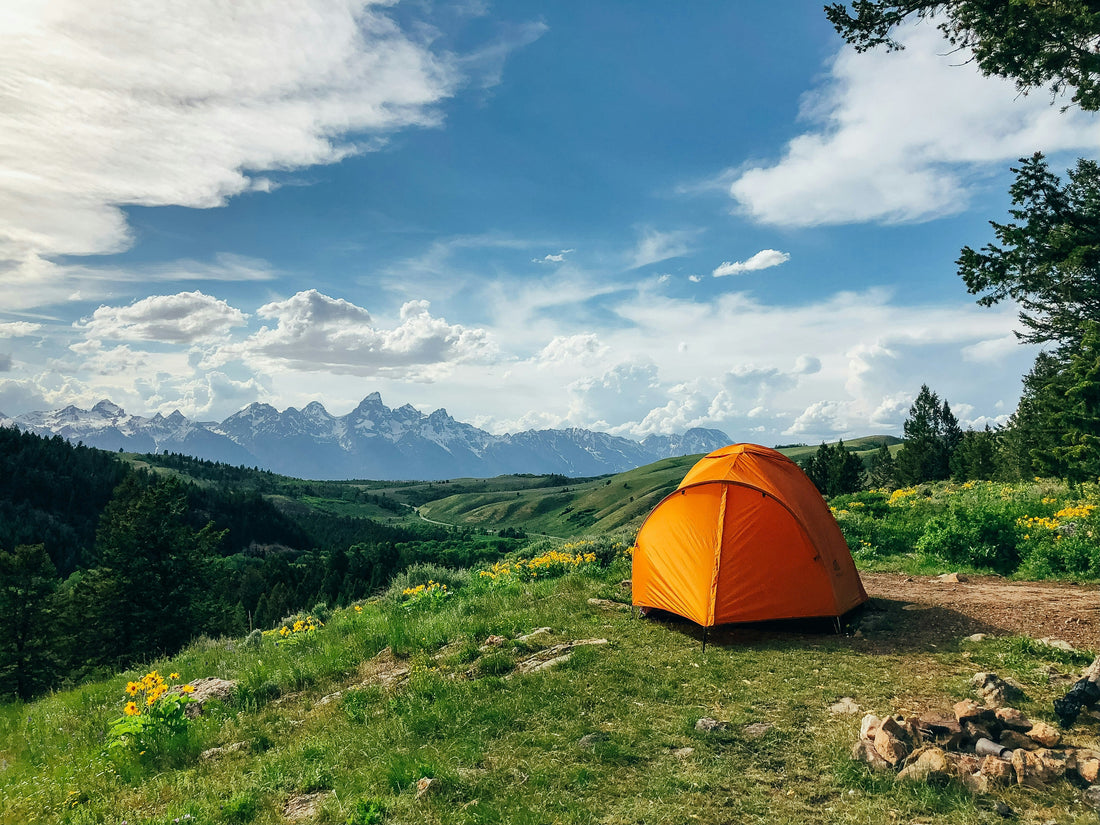
Best Camping Locations: Discover Amazing Outdoor Destinations
Share
Introduction
Finding the perfect camping spot can transform a good trip into an unforgettable adventure. Whether you're seeking mountain vistas, lakeside serenity, forest solitude, or coastal beauty, the world offers incredible camping destinations for every type of outdoor enthusiast. This guide will help you discover amazing camping locations and choose the perfect spot for your next adventure.
1. Types of Camping Destinations
Mountain Camping
Best For: Stunning views, hiking, cooler temperatures, solitude
What to Expect:
- Dramatic scenery and panoramic views
- Challenging terrain and elevation
- Cooler temperatures (even in summer)
- Incredible sunrise/sunset vistas
- Wildlife sightings
Recommended Gear: Our Ultralight Trekking Tent is perfect for mountain backpacking!
Lakeside Camping
Best For: Swimming, fishing, water sports, family camping
What to Expect:
- Water activities and fishing opportunities
- Beautiful reflections and sunsets
- More developed campgrounds
- Perfect for our fishing gear collection
Forest Camping
Best For: Shade, privacy, nature immersion
What to Expect:
- Natural shade and cooler temperatures
- Peaceful, secluded atmosphere
- Rich biodiversity and wildlife
- Mushroom foraging opportunities
Coastal/Beach Camping
Best For: Ocean views, beach activities, sunsets
What to Expect:
- Ocean breezes and sounds of waves
- Beach activities and water sports
- Spectacular sunrises or sunsets
- Wind - secure your tent well!
2. Choosing the Right Location
For Beginners
- Developed campgrounds with facilities
- Easy access (drive-in camping)
- Nearby services and help
- Marked trails and cell coverage
For Families
- Campgrounds with amenities
- Nearby activities and attractions
- Safe swimming areas
- Our Premium 6-8 Person Automatic Tent is perfect!
For Adventure Seekers
- Backcountry/wilderness camping
- Remote locations
- Self-sufficient trips
- Navigation skills required
3. Seasonal Camping Guide
Spring (March-May)
Pros: Wildflowers, fewer crowds, moderate temperatures
Cons: Unpredictable weather, muddy trails
Best Locations: Lower elevation forests, southern regions
Summer (June-August)
Pros: Warm weather, all areas accessible, long days
Cons: Crowded spots, more insects
Best Locations: Mountains, lakes, coastal areas
Fall (September-November)
Pros: Beautiful foliage, cooler weather, fewer crowds
Cons: Shorter days, some facilities closing
Best Locations: Forests, mountains, anywhere with fall colors
Winter (December-February)
Pros: Solitude, winter beauty, unique experience
Cons: Cold, limited access, requires special gear
Best Locations: Lower elevations, southern regions
4. National Parks and Protected Areas
Why Choose National Parks?
- Well-maintained facilities
- Ranger programs and guided tours
- Protected natural beauty
- Established trails and campsites
- Safety and emergency services
Booking Tips
- Reserve early (popular parks book months ahead)
- Check for permits required
- Understand park regulations
- Know seasonal closures
5. Finding Hidden Gems
Research Resources
- Local hiking clubs and forums
- Park ranger recommendations
- Camping apps and websites
- Social media groups
- Word of mouth from experienced campers
Off-the-Beaten-Path Tips
- Visit during shoulder season
- Explore lesser-known parks
- Hike further from parking areas
- Check state and regional parks
- Ask locals for recommendations
6. Campground Amenities Guide
Primitive Camping
- No facilities
- Bring all supplies
- Pack out all waste
- Most affordable
- Maximum solitude
Basic Campgrounds
- Pit toilets
- Fire rings
- Picnic tables
- No running water
Developed Campgrounds
- Flush toilets
- Running water
- Showers (sometimes)
- Electric hookups
- Camp store
7. Location-Specific Considerations
Water Access
If camping near water:
- Camp at least 200 feet from water source
- Bring water purification
- Watch for flooding potential
- Respect wildlife water access
Altitude Considerations
High elevation camping:
- Acclimate gradually
- Drink extra water
- Expect colder temperatures
- UV exposure is stronger
- Weather changes quickly
Wildlife Areas
- Research local wildlife
- Proper food storage essential
- Know what to do in encounters
- Respect animal habitats
8. International Camping Destinations
Europe
- Alps (Switzerland, Austria, France)
- Scottish Highlands
- Norwegian Fjords
- Croatian Coast
North America
- Canadian Rockies
- Yosemite National Park (USA)
- Banff National Park (Canada)
- Grand Canyon (USA)
Other Continents
- Patagonia (South America)
- New Zealand wilderness
- Australian Outback
- African safari camps
9. Planning Your Perfect Trip
Research Checklist
- □ Check weather forecast
- □ Reserve campsite if needed
- □ Obtain permits
- □ Review trail maps
- □ Check facility availability
- □ Read recent reviews
- □ Note emergency contacts
What to Bring
Check out our complete guides:
10. Leave No Trace
Protect These Beautiful Places
- Pack out all trash
- Stay on designated trails
- Respect wildlife
- Leave natural objects
- Minimize campfire impact
- Be considerate of others
Tips for First-Time Location Scouts
Start Close to Home
- Explore local campgrounds first
- Build confidence gradually
- Learn what you like/dislike
- Easy to return if needed
Visit During Off-Peak Times
- Weekdays vs. weekends
- Shoulder season
- Early morning arrivals
- Better campsite selection
Have a Backup Plan
- Alternative campsites nearby
- Flexible dates
- Weather contingencies
- Emergency accommodations
Conclusion
The perfect camping location is out there waiting for you! Whether you prefer mountain peaks, lakeside tranquility, forest solitude, or coastal beauty, the key is matching the location to your experience level, interests, and goals.
Remember:
- Start with easier locations and build up
- Research thoroughly before you go
- Respect nature and Leave No Trace
- Be flexible and open to new experiences
- Safety first, always
Ready to explore? Make sure you have the right gear from our camping collection and check out our other guides for camping tips and advice!
Happy exploring! 🏕️🌲
